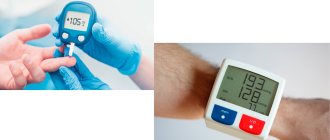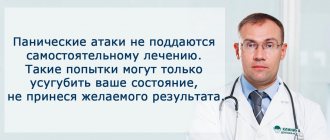Having celebrated their fortieth anniversary, each person overcomes an important milestone. It is no coincidence that this figure is often associated with a midlife crisis. By the way, this condition is not something absolutely inevitable - not all people experience it.
At the age of forty, many women begin to rethink themselves and their lives. They don’t feel old yet, but they understand that they are no longer young. The body sends the “first bells”, the beginning of hormonal changes makes itself felt, and symptoms of the so-called premenopause may even appear (they can occur several years before menopause). And for many women these are very painful signals.
If many men believe that with age they only become more beautiful, like wine, then women begin to realize that youth and beauty are slowly disappearing, and they want to preserve them longer, to somehow slow down this process. In this article, we will not cover banal facts about healthy eating, bad habits, regular trips to the gym, the possibilities of modern cosmetology, care products and anti-aging drugs. Instead, we will share some non-obvious ways to prolong your youth that you may not have thought about.
Smile more often
Remember the famous lines from the children's song “A smile makes everyone brighter”? In 2021, scientists from the University of Missouri in Kansas City (USA) showed students photographs of people with different facial expressions and asked them to determine their age. It turned out that when a person smiles, he is perceived as younger.
It is important not just to smile and laugh more often, but also to maintain a positive attitude in general - it greatly affects self-perception. People who are often in a good mood age slower than chronic pessimists - this is also a scientifically proven fact. There is a clear connection between chronic stress, depression and accelerated aging. If you have been experiencing sadness, anxiety, constant fatigue, a feeling of hopelessness for a long time, you don’t want to do anything, and you can’t cope with this condition on your own, you need to see a psychotherapist. In some cases, these conditions can only be treated with medications.
Symptoms of a panic attack:
- Increased vigilance for possible danger or threat to life
- Anxiety or irrational thinking
- A strong feeling of anxiety or foreboding
- Fear of going crazy, losing control of yourself in a public place
- Fear of death
- Fear of heart attack
- Dizziness
- Tingling, chills, numbness especially in the arms and hands
- Body tremors or sweating
- Hot flashes (feeling of heat in the face and upper shoulder girdle)
- Tachycardia (increased heart rate)
- Feeling of tightness or heat in the chest
- Difficulty breathing (on inhalation or exhalation)
- Nausea or upset stomach
- Muscle tension in the body (stiffness)
- Dry mouth
- Feeling of unreality of what is happening around, isolation from the environment “the world is like in a movie”, derealization
- Urination or increased frequency of urination after a panic attack
When the body encounters intense fear, the brain tells the autonomic nervous system to activate “defense mechanisms.” The human body is filled with a number of chemicals, including adrenaline, which cause physiological changes. The pulse quickens, the blood pressure rises, the breathing slows down or becomes more rapid... the human body is ready to face a “life-threatening situation.” In reality, symptoms of a panic attack can occur in completely relaxed environments and harmless places, such as at a restaurant with friends, while watching a movie, or even in a dream.
Spend more time with friends
They say that as a person ages, he wants to spend time in noisy companies less and less, and more and more often there is a desire to turn on the introvert mode and spend the weekend at home, wrapped in a blanket and turning on his favorite TV series.
But scientists believe that a lack of regular communication can have a bad effect on your health and make you age faster. In 2021, researchers from the University of North Carolina at Chapel Hill (USA) published the results of a study showing that strong connections with friends help people feel younger and even live longer. In addition, the most sociable study participants had lower blood cholesterol, lower blood pressure, and were less likely to be obese. Whatever one may say, man is a social creature.
Signs of a panic attack
Psychology courses
Psychotherapist of the 21st century
Teacher: Aina Gromova
For any level of knowledge
Effective methods for treating anxiety disorders, phobias, panic attacks and depression. Mistakes in counseling clients with anxiety disorders and psychosomatic illnesses.
for free
More details
During an attack of fear, a person may experience severe anxiety, a desire to run away, fear of communicating with other people, and the appearance of phobias that are unusual for him. There is also fussiness and a desire to leave the place where the panic attack occurred as quickly as possible.
Physical symptoms may include:
- frequent heartbeat, increased pulse rate;
- sweaty palms;
- chills, trembling limbs;
- discomfort in the stomach;
- nausea, headache;
- trembling in the limbs;
- convulsions;
- severe lack of air, feeling of a lump in the throat and squeezing in the chest;
- gait disturbances.
Drink more water
Water is the basis of life. Without it, vital biochemical reactions are impossible. When you're dehydrated, you by definition don't feel good and your metabolism slows down. See what important functions water performs in your body:
- promotes good digestion, prevents constipation;
- ensures free movement in the joints, as it is part of the natural biological lubricant;
- helps the brain produce neurotransmitters (substances necessary for the transmission of nerve impulses), some hormones;
- is the main component of blood;
- supports metabolism;
- provides thermoregulation.
The average person is recommended to drink 8 glasses of water daily - from 1500 to 2000 ml. But individual needs may vary depending on the characteristics of metabolism, physical activity, air temperature, etc.
Physiology of a panic attack
Sudden fear is triggered by the release of the hormone adrenaline into the blood. It stimulates the nervous system, which leads the body into vigorous activity. Hence the manifestations of tachycardia (increased heart rate) during PA, increased sweating, and hyperventilation. Due to the fact that breathing becomes more frequent during an attack, the level of CO2 in the blood decreases, therefore the level of blood acidity also changes. This explains dizziness, headaches, tingling or lack of feeling in the arms and/or legs.
There is no source of fear as such, fear appears because of little things. This may be a provoking factor from the outside world: noise, a sharp sound, a crowd of people, appearing in an unfamiliar place, etc. And when a person is exposed to any factor, an unreasonable panic begins.
Reduce your sugar intake
If water is your friend, then sugary soda, like all products containing added sugars, is your worst enemy.
They make you feel older, and they actually make you older. Added sugars lead to obesity, tooth decay, diabetes, non-alcoholic fatty liver disease, and worsen menopause. In turn, these conditions are risk factors for the development of cardiovascular diseases and cancer. Excess fat tissue is dangerous: it leads to chronic inflammation in the body and produces substances that cause certain hormonal effects. Added sugars give a burst of energy, but soon this “battery” runs out, and fatigue and drowsiness occur. They cause a glycation reaction, and its products damage other molecules. Collagen, the protein that retains fluid and ensures the elasticity and beauty of your skin, is severely damaged. At the same time, added sugars cause an addiction-like state, and, once you become a sweet tooth, they are often not so easy to “get off.” In addition to soda, a person gets the lion's share of added sugars from confectionery, chocolate, desserts based on dairy products, tea, and white bread. Experts advise that sugar should account for no more than 10% of your daily calories. And if you want to treat yourself to something sweet, it is better to choose fruits - they contain “good” carbohydrates.
Don't skip breakfast
It's so easy to skip breakfast when you have a busy day ahead and need to rush to work. Often there is a temptation to limit yourself to a cup of coffee, at best a hastily made sandwich, and then have a snack somewhere during the day. But in fact, the first meal is very important, and it is necessary that it contains a lot of protein. In the first half of the day, metabolic processes in the body are most active. The food taken is quickly and well absorbed. Eating nutritious breakfasts helps control hunger throughout the day and maintain a healthy weight.
In addition, some scientific studies show that regular, nutritious meals in the morning help reduce cravings for sweets and salty foods. If you get up early and have a good breakfast, and then have an equally good lunch, there is a high probability that by the evening you will not be so obsessively drawn to the refrigerator.
Have sex
You can often hear that sex burns no less calories than jogging or working out in the gym.
This, of course, is a myth, but in some ways regular intimacy is not inferior to sports. During sex, brain cells produce endorphins - “hormones of happiness”, compounds that improve well-being, reduce pain and normalize sleep. In addition, growth hormone is produced, which improves the condition of the skin.
British psychologist David Weeks has studied the intimate lives of thousands of men and women for many years. In 2013, he spoke to the British Psychological Society and stated that people who have frequent sex, on average, look 5-7 years younger, thanks to the above hormones.
Also interesting are the results of a small study conducted in 2017 by scientists from the University of California, San Francisco. Researchers studied the sexual habits of 129 mothers. Women who have sex at least once a week have been found to have longer telomeres, the ends of chromosomes that protect genetic material. Gradually, telomeres shorten, this process is accelerated by unhealthy diet, bad habits, and poor environment. Physical activity, proper nutrition and, apparently, sex protect telomeres. Although the study was small, its results are cause for concern.
Panic attack
A panic attack occurs when stress hormones put your body in a fight-or-flight state. In some cases, this leads to even more frightening symptoms: rapid heartbeat, chest pain, shortness of breath.
There are two key differences from a heart attack. First, a panic attack has nothing to do with physical activity. You could be in a state of absolute peace (physical, not mental) when you felt a wave of inexplicable anxiety coming over you and out of proportion to external circumstances. Often the trigger for a panic attack is a recent psychological shock, or simply being in an unpleasant environment, such as public transport.
The second key difference is that panic attacks, once they reach their peak, rarely last long and usually subside within half an hour. Heart attacks usually only increase in intensity, and the patient may become sicker and sicker.
Typical symptoms of a panic attack:
- Rapid pulse
- Irregular breathing
- Intense sweating
- Tingling in hands
- Sudden onset or onset during times of extreme stress or anxiety
- Pain and symptoms subside within 20-30 minutes
© pixabay.com
Train your brain
When hearing the word “old age,” many people first of all think of sagging, wrinkled skin, a bent back, and gray hair.
These are the most obvious signs, what is visible at first glance. But age-related changes also occur in the nervous system, and if you do not work on them, they can lead to devastating consequences. Every person can live to a ripe old age maintaining a clear mind, but, unfortunately, not everyone succeeds. Many people experience decreased mental abilities, and some develop dementia, a disease that ultimately makes a person disabled, unable to perform the simplest tasks like washing and dressing. It's impossible to be 100% protected, but you can take some precautions in advance. The brain, like muscles, can and should be trained. Any mental work is useful, even banal crossword puzzles, computer and board games, and reading books.
At 40, it’s not too late to learn something new, even get a full-fledged education. This will not only support the nervous system, but also make you feel young again, feel that a new stage in life is beginning, and that there is still much to come.
In addition to brain training, experts recommend two other effective measures to maintain normal nervous system function: controlling blood pressure and regular physical activity.
Protect your skin from the sun
Perhaps you have heard the term “photoaging”? Ultraviolet rays are bad for the skin, damaging DNA and other important molecules. As a result, fine lines, wrinkles, and dark spots appear on the skin. By turning to cosmetologists to restore youth and beauty, you are fighting the consequences of the destructive effects of ultraviolet radiation. It is worth thinking about prevention:
- try not to be outside during peak solar activity - from about 10.00 to 16.00;
- try to stay in the shade;
- Wear a hat with a wide brim that provides shade on your face and neck;
- use sunscreen.
These measures prevent not only photoaging, but also cancer, as well as a very aggressive malignant tumor - melanoma.
Rest, sleep, relax
The older a person is, the more important a proper sleep plays for him.
It has been scientifically proven that people who chronically do not get enough sleep have deteriorating memory, they become irritable, and constantly feel a lack of energy. Such people look the part. And constant work on night shifts increases the risk of cardiovascular diseases, some cancers, and stroke. In addition to night sleep, regular, good rest during the day is also important. Its absence leads to emotional burnout, constant feelings of anxiety, chronic stress, and depression.
All this accelerates the aging process. Constantly pushing yourself with work and household chores, you can, at 40 or 30 years old, come to the conclusion that nothing makes you happy anymore, and life is devoid of any meaning.
It is important to be able to relax, “reset” your mind and shake off the burden of everyday problems. All sorts of relaxation techniques, meditation, interesting hobbies, and walks in the fresh air help with this.
What to do during a panic attack
“Panic attack” syndrome, what do you need to know about it and how to deal with it? A panic attack (in our interpretation) is an attack of unmotivated, inexplicable fear (anxiety, excitement), exceeding or “approaching” the limit of physiological adaptation, which can lead a person to a severe somatic condition and/or “make” a sick citizen socially dangerous to himself and others .
29.03.2019
Among women
panic attacks occur somewhat more often than among men.
On average, every twentieth person in the world has at least once experienced the feeling of a panic attack. Predisposing (background) conditions (diseases) that can provoke a panic attack can be hormonal “disorders” (diseases of the thyroid and pancreas, menorrhea, menopause, pathology of the adrenal glands), diseases of the cardiovascular system, oncological diseases, use of narcotic and psychotropic substances, mental disorders history or family history, chronic stress, recent severe stress, chronic fatigue syndrome and some other less rare conditions.
“Panic attack is a modern diagnosis”
. But “I wouldn’t want to live in such a modern age,” where 1 in 20 people is capable of panicking. However, the “bonus” of the 21st century is not only in the increase in the number of panic attacks in people, but also in the modern diagnosis and treatment of those conditions that provoke panic attacks. Obviously, we will not reduce the intensity of life thanks to treatment in the hospital, but we will change the attitude towards it (psychologist, psychotherapist) and minimize the risks of panic states by removing existing diseases (doctors of relevant specialties such as endocrinology, neurology, therapists, oncologists, cardiologists, gynecologists and many others) - we can do it easier than it even seems.
It is enough to call the single telephone number of our dispatch service or an expert doctor by phone and you will receive an answer to solve the problem in a matter of minutes, you can also be offered medical assistance to eliminate a panic attack right at home, when the patient will receive peace and serenity, even sleep is possible .
The heart, blood vessels, and gastrointestinal tract bear especially increased load during a panic attack. It is possible to develop a stroke or heart attack. Possible “worsening” of symptoms occurs according to the following scheme:
- single manifestations of severe panic ->
- attacks occurring more frequently, with possible new symptoms ->
- panic fear for one’s own health that does not go away for a long time ->
- the formation of “rituals” (habitual, repetitive actions that help avoid the progression of panic (people stop riding in the elevator, leaving the house) ->
- the addition of depression (sleep disturbances, appetite, mood) and feelings of social “vulnerability”, “insecurity”.
Panic attack syndrome can manifest itself in different ways.
People with strong organization and emotional stability are less susceptible to daytime attacks (they control their reactions during the day through willpower), and more often “give in” to a panic attack at night, when clarity of consciousness and the level of self-control decrease (during sleep). Symptoms such as
:
- cardiopalmus; feeling of lack of air, fear of death, fear of going crazy
- stunned consciousness, dizziness, lightheadedness,
- tremor (shaking) of the limbs and throughout the body;
- sweating, nausea and other gastrointestinal disorders;
- goosebumps, numbness in certain parts of the body; chills or flushing
- discomfort and pain in the chest;
- loss of sense of reality (derealization); loss of a sense of personal identity (depersonalization).
A panic attack differs from severe stress by its suddenness and the absence of a specific cause (you didn’t meet a wolf, you didn’t get involved in an accident, but fear set in, strong and inexplicable).
Until the ambulance arrived to help
,
treatment with folk remedies is possible
(this will give ritualism, meaningfulness to the actions, and give a feeling of control over the situation:
• Sit or lie down in a comfortable position • Exhale into any available container (bag, jar, balloon, plastic bottle, palms folded together). • Drink a glass of water at room temperature, stirring one tablespoon of sugar in it; • Rinse your face, neck and hands with cold water. • Smile in the mirror • Read a well-known verse or prayer by heart • Try to concentrate on something important in your life or the life of a friend, and think about it
Sometimes drugs are used
before the doctor arrives
, which may not be safe in case of large dosages or individual intolerance to the drug:
• Validol 1-2 tablets under the tongue until completely absorbed. • Glycised from 1 to 5 tablets under the tongue until completely absorbed. Both validol and glycised should not be taken all at once, but gradually, one at a time. • Corvalol 30 to 50 drops of alcohol solution added to half a glass of plain water. Take once. You can take Corvalol again no earlier than after one hour. • Swallow 1 to 3 tablets of Gidazepam, phenazepam or another tranquilizer with water. • Anaprilin (obzidan, propranolol) 1/2 - 1 tablet (depending on the dose, 10 or 40 mg per tablet) - no more than 20 mg per dose, sublingually or swallow. Do not exceed the dose. Anaprilin is contraindicated in case of low pulse and blood pressure and is very dangerous in case of overdose.
No medicinal calming herbs (tinctures of valerian, motherwort, hawthorn, peony) will help relieve an attack of PA, as they have a very weak and delayed (cumulative) effect over time, compared to tablets and intravenous drugs. Therefore, their use during an attack of PA is useless.
The most important thing is to have time to report the beginning of the problem to the ambulance. City or private.
Calling an ambulance and transporting
| Sanitary transport | Linear transportation (calling a line crew + transportation) | |
| Moscow (within the Moscow Ring Road) | 4 000 | 7 500 |
| Moscow region up to 10 km from MKAD | 8 000 | 11 500 |
| Moscow region 10-30 km from MKAD | 8 500 | 12 500 |
| Moscow region 30-45 km from MKAD | 9 000 | 13 500 |
| from 45-60 km from MKAD | 13 000 | 16 500 |
| from 60-100 km from MKAD | 8,000 + 125 rub/km | 12,000 + 125 rub/km |
| from 100-300 km from MKAD | 12,500 +100 rub/km | 14,500 + 120 rub/km |
| from 300-1000 km | 15,500 + 90 rub/km | 17,500 + 110 rub/km |
| from 1000-2000 km | 25,500 + 80 rub/km | 27,500 + 100 rub/km |
To contact an expert doctor, call 8(925) 898-03-03 - consultation is 24/7 and free
Hospitalization
You can ask all questions related to hospitalization and transportation to our on-duty consultant doctors 8(925)898-03-03
Consultation is free
Still have questions?
CALL BACK CONSULTATION ON SERVICES
Company Services
- Calling a medical team
- Planned hospitalization
NEW IN THIS SECTION
15.06.2021
Transporting a patient to CPAP in Moscow
15.06.2021
Interhospital patient transfer
11.06.2021
Selection of a clinic in Moscow for hospitalization of a patient with Covid
Do something crazy
You've probably noticed that as you get older, time passes faster.
For a child, a day can last forever, but for those over 30, weeks and months fly by like one day. The reason is that in the lives of adults there are fewer and fewer new, unexpected, interesting discoveries. Everything around is familiar and predictable, nothing evokes the former delight. A person stops seeing bright colors in life, feels old and tired. If you are faced with this condition, then it's time to shake yourself up.
In small doses, the hormone adrenaline only brings benefits.
Do something out of the ordinary. At a minimum, you can cut your hair and dye your hair in a color that you have never worn, and radically change your wardrobe. Want more? Go on an unusual journey, realize an old crazy dream, jump with a parachute. You need new experiences to feel younger and realize that life is not over, there are still many interesting things ahead.
Panic attack: what is it?
A nervous breakdown and panic attack are severe reactions during which a person experiences a feeling of loss of control over their nerves .
The reason for this is panic thoughts that are catastrophic in nature. All this is accompanied by hyperventilation of the lungs, which greatly increases the pace of physiological processes in the human body.
As for the physical side of this phenomenon, it is characterized by hyperactivation of the amygdala. Normally, this organ is activated when a person finds himself in a dangerous situation.
To deal with this problem, it is necessary to discover the causes of its occurrence. Why does our body react to fairly harmless environmental stimuli as if it were something threatening and dangerous?
In any case, to obtain a correct diagnosis, it is recommended to consult a specialist. As a rule, prescribed psychotherapy allows you to discover the real causes of panic attacks.
Symptoms of a panic attack
Speaking about the symptoms of a panic attack, it should be borne in mind that such a reaction tends to develop in a person in ordinary life situations that do not pose any threat to his life.
- Typically, panic attack symptoms never last longer than 10 minutes. At this time, a person experiences chest pain. Such pains appear suddenly, but disappear just as quickly.
- This may be accompanied by numbness and stabbing pain in the limbs. It is worth remembering that during a panic attack, pain spreads not only to the left, but also to the right arm, legs and fingers.
- A panic attack causes a person to experience irrational fears. For example, fear of losing your mind.
If you are not sure what exactly is happening to you, and cannot understand whether it is a heart attack or a panic attack, you should immediately call a doctor . Waiting in either case is not the wisest decision.
Surely you understand that if you have a heart attack, neglecting medical help and waiting can end very badly for you. Without immediate assistance, such patients may die.
If we are talking about a panic attack, then this problem also needs serious attention. Otherwise, the frequency of such attacks may increase . Timely treatment will allow you to prevent the situation from worsening and restore your health.
How to delay the onset of menopause?
At the age of 40, many women feel more acutely that time is passing. Menopause and hormonal changes are approaching, and thoughts about this can cause severe discomfort. Unfortunately, this restructuring of the female body is inevitable and irreversible. For some it happens earlier, for others later: your biological clock and the functioning of hormones are programmed in your genes. But they can be tweaked a little. Some external factors affect hormonal levels and accelerate the onset of menopause:
- Smoking. For example, one study found that women who smoke 14 or more cigarettes daily go through menopause almost 3 years earlier than non-smokers.
- Alcohol. In women who do not use it at all, their periods usually stop earlier. And moderate consumption delays the onset of menopause. But it is not exactly.
- Regular excessive physical activity and lack of proper rest.
- A large amount of polyunsaturated fats in the diet. Proteins and carbohydrates have the opposite effect.
- Low body mass index (BMI). To calculate this indicator, you need to divide your weight in kilograms by the square of your height in meters.
- Arterial hypertension.
- Rare walks in the fresh air, lack of sunlight.
- Low level of income, education, low social status. Apparently, the reason is that such women more often have to deal with the influence of various negative factors.
- Taking certain medications.
Taking hormonal contraceptives, on the contrary, slows down the onset of menopause. But this is not a reason to immediately run for pills: before taking hormones, you need to consult a doctor and choose the right medications.
This type of contraception has not only advantages, but also disadvantages. It has also been proven that if a woman gives birth to her first child late, then she will most likely experience menopause later. But even here it’s a double-edged sword: after 35 years, the number of eggs in the ovaries decreases, hormonal levels change, and it becomes more difficult to get pregnant. There is an increased likelihood that you will have to resort to IVF and other assisted reproductive technologies.
To summarize, we can say that 40 years is still quite a bit. According to the World Health Organization classification, people aged 18–44 years are considered young. However, this classification is not a universal criterion. The proverb is true, according to which a person is only as old as he feels. Biological age can differ greatly from the passport age, depending on the psycho-emotional state, how “worn out” the body is, and hormonal levels.
Genetics and hormones play a big role, but they are far from the only factor.
Much depends on lifestyle, attitude towards your health, general psychological mood, atmosphere in the family and at work. You can influence these factors, and it's never too late to start. Even if you are 40 and approaching the upper limit of youth set by WHO experts. Whatever your luggage, life goes on.
How does a panic attack go?
Surprisingly, not every person who is prone to panic attacks understands what exactly is happening to them. Very often, a panic attack is confused with cardiac pathology, because the symptoms are indeed somewhat similar. A panic attack, or as it is otherwise called, a vegetative crisis, can begin with severe pain in the chest, rapid heartbeat and a feeling of lack of air. Patients often try to relieve these symptoms with Corvalol or other cardiac medications, but in the event of an episode of panic attack this is usually not an effective method.
Characteristic symptoms of a panic attack also include tremors, sweating, a feeling of impending fainting, chills, dizziness, nausea, a feeling of depersonalization (“this is not happening to me”) and derealization, and most importantly, unmotivated fear that cannot be explained and is incredibly difficult to control . However, it should be taken into account that a feeling of fear may be present - in some cases, patients do not panic during an attack, but are haunted by a feeling of melancholy, depression, they may be aggressive or tearful.
The duration of such attacks ranges from a couple of minutes to several hours, averaging 15-30 minutes. The frequency of panic attacks varies from several times a day to one or two episodes per month. As a rule, panic episodes occur without any apparent reason, but in some cases a pattern can be traced - for example, a panic attack occurs only in an open area or only indoors, when driving a vehicle, before leaving the apartment on the street, exclusively in alone or, on the contrary, in a large crowd of people.
Panic episodes themselves do not pose any danger, but they can destroy your life and lead to the development of phobias, severe depression and neuroses, which in turn provoke an increase in panic attacks. Vegetative crises change the pattern of human behavior - people try to avoid situations in which this attack may occur, become irritable and suspicious, constantly listen to their condition and live in fear, waiting for a new episode.
First aid for a panic attack is an important part of the treatment of the disease as a whole. Calling an ambulance during a panic attack is the best decision, especially if the attack occurred at night. Emergency medicine specialists will not only help you cope with a panic attack, but will also make an appointment with a psychotherapist. Of course, attacks can be too painful that there is a desire to fight the attack on your own. Different types of medications, such as sedatives, if they can cause positive dynamics, then only for a certain period of time. Taking these drugs to combat panic attack episodes is highly addictive because it can cause fear if the drug suddenly stops working.
Finding yourself in such a loop, you can completely lose hope of curing the disorder, but a carefree life without panic attacks is real. Psychological assistance during a vegetative crisis shows very good effectiveness. Since the sources of panic attacks are in our minds, as well as our behavioral model. The therapist's help in treating panic attacks is cognitive therapy, which is based on learning theory. This technique can help more than ninety percent of people suffering from panic disorders. A psychotherapy session is not only the best quick help for a panic attack, but also excellent therapeutic help.










